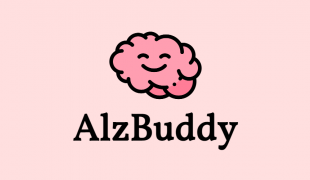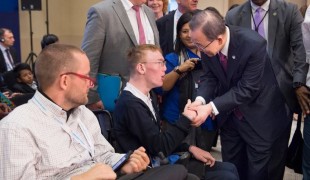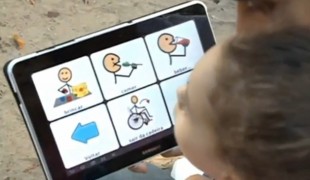- 10333
- 716
- 16
- 17
- 0
- Help Ukraine
About the solution
Luis was always interested in game programming and digital electronics, and when he met a tetraplegic classmate, he got inspired to channel his knowledge and skills towards him.
“Meeting him, and hearing about some testimonies of people with similar illnesses, made me realize that a lot of people with disabilities don’t have access to technology that help them overcome communication problems just because those systems are way too expensive. I also thought that it would be a good way to combine this new project with my older projects, such as playing my video game system with the eyes”, he explained.
His innovation – the Eyeboard – consists of an open source Human-Computer Interface that provides the user the ability to communicate with other people and interact with a computer using just their eyes, using Electrooculography. Luis built the full system into a set of glasses for less than US$300, putting easier communication within reach of users in developing countries.
When the inventor started searching for existing solutions, he realized they were too expensive.
“Human-Computer Interface that would provide the user the ability to communicate with other people and interact with a computer using just their eyes. The prototype of the monitoring system of bioelectrical signals I developed, could be built with as little as two hundred US dollars, while other similar biomedical systems available could cost a minimum of ten thousand dollars”, he expressed.
Luis launched a Kickstarter campaign to help him fund the project.
More info: http://www.intelsath.com/eyeboard.php
http://kck.st/2nrXN16
Adapted from: http://bit.ly/2msjBcd
https://youtu.be/3vsgVPNIfk0
This solution shall not include mention to the use of drugs, chemicals or biologicals (including food); invasive devices; offensive, commercial or inherently dangerous content. This solution was not medically validated. Proceed with caution! If you have any doubts, please consult with a health professional.
DISCLAIMER: This story was written by someone who is not the author of the solution, therefore please be advised that, although it was written with the utmost respect for the innovation and the innovator, there can be some incorrect statements. If you find any errors please contact the patient Innovation team via info@patient-innovation.com
-
-
310
-
0
-
3419

AlzBuddy – Two students design app for Alzheimer’s patients
-
-
-
574
-
0
-
7579

Patient develops communication device
COMMUNICATION: Communicating, whether by speaking, listening, or other means
Reading
Cerebral Palsy
Neuromuscular Disorders
App (Including when connected with wearable)
Muscle cramps or spasms
Difficulty coordinating movements
Stiffness or rigidity (difficulty moving)
Paralysis of the legs and lower body
Muscle weakness
Difficulty speaking or understanding speech
Promoting self-management
Managing Neurological Disorders
Promoting inclusivity and social integration
Improving Speech and Communication
Neurology
Pediatrics
Russian Federation
-
-
-
709
-
0
-
10307

Pai cria Livox: comunicação alternativa para a sua filha
COMMUNICATION: Communicating, whether by speaking, listening, or other means
Cerebral Palsy
App (Including when connected with wearable)
Cognitive impairment
Enhancing health literacy
Managing Neurological Disorders
Promoting inclusivity and social integration
Improving Speech and Communication
Raise awareness
General and Family Medicine
Neurology
Pediatrics
United States
-
 en
en